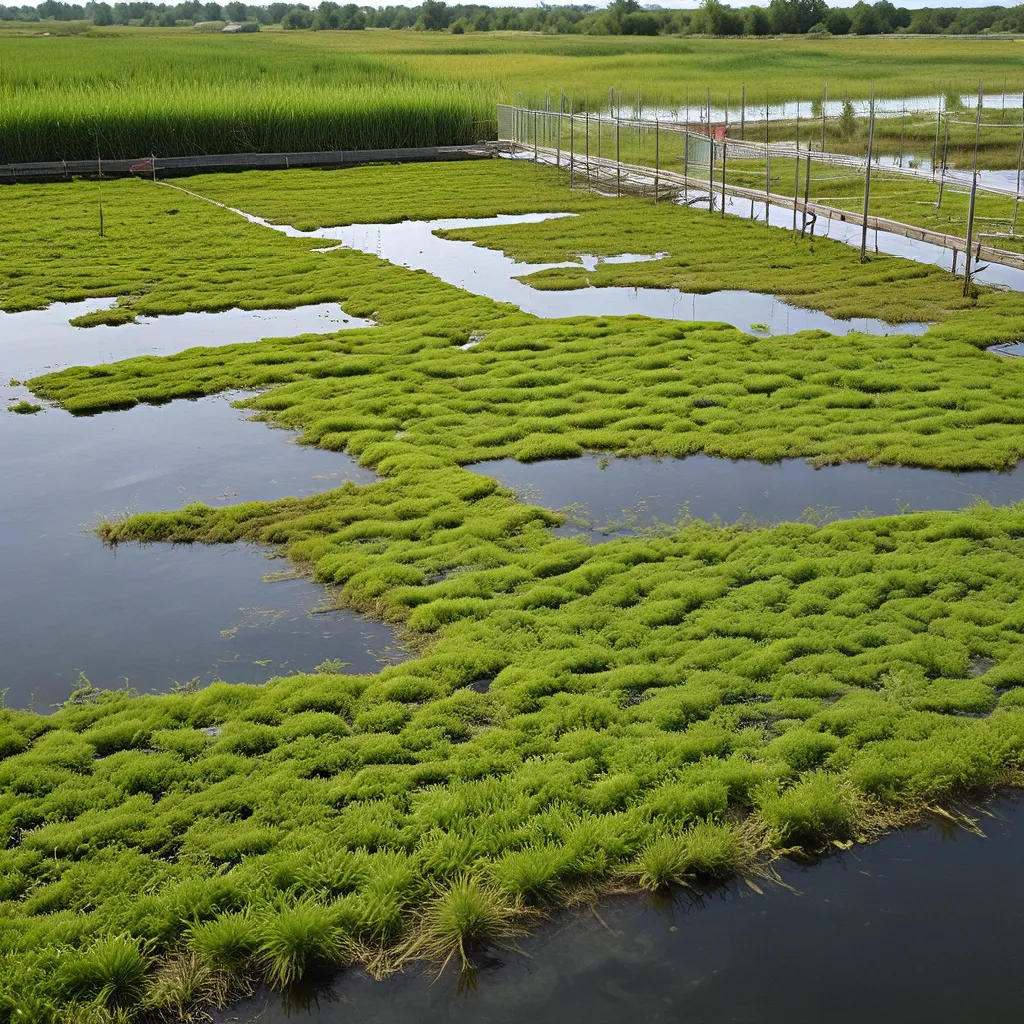
As someone deeply fascinated by the intersection of science and sustainability, I’ve always been intrigued by the incredible potential of microalgae to revolutionize the way we approach wastewater treatment. It’s a topic that’s been gaining increasing attention in recent years, and for good reason – the innovative use of these microscopic powerhouses could hold the key to more efficient, eco-friendly, and cost-effective wastewater management.
Unveiling the Problem: Conventional Wastewater Treatment Challenges
Let’s start by acknowledging the elephant in the room – traditional wastewater treatment methods have long been plagued by a range of issues. From the high energy demands of energy-intensive processes like activated sludge treatment, to the costly disposal of the resulting sludge, the shortcomings of conventional approaches have become increasingly apparent. And with the ever-growing pressure to find sustainable solutions, it’s clear that we need to think outside the box.
Microalgae: Nature’s Versatile Wastewater Warriors
This is where microalgae come into the picture, and let me tell you, these microscopic marvels are nothing short of remarkable. These photosynthetic organisms possess an innate ability to thrive in nutrient-rich environments, including the very wastewater that we’re struggling to treat. And the best part? They can remove a diverse array of pollutants, from nitrogen and phosphorus to heavy metals and even organic compounds, all while producing valuable biomass as a byproduct.
Phytoremediation: The Algal Approach to Wastewater Cleanup
Harnessing the power of microalgae for wastewater treatment is known as phytoremediation, and it’s a strategy that’s been gaining traction around the world. The concept is simple yet ingenious: by cultivating microalgae in wastewater, we can leverage their natural ability to absorb and metabolize the very contaminants that plague our water systems. It’s a win-win scenario, where we not only clean up the water but also generate a resource-rich biomass that can be further utilized.
The Diverse Applications of Microalgae-Based Wastewater Treatment
The versatility of microalgae-based wastewater treatment is truly astounding. Not only can they remove a wide range of pollutants, but the resulting biomass can also be converted into valuable products, such as biofuels, animal feed, or even high-value compounds for the pharmaceutical and cosmetic industries. It’s a circular economy in the making, where waste becomes a valuable resource.
The Road Ahead: Optimizing Microalgae-Based Wastewater Treatment
Of course, as with any emerging technology, there are still challenges to overcome in the realm of microalgae-based wastewater treatment. Researchers are actively exploring ways to optimize the cultivation conditions, enhance the nutrient removal efficiency, and develop cost-effective scaling strategies. And with the continued advancements in fields like synthetic biology and bioreactor design, the future of this approach looks incredibly promising.
Embracing the Sustainable Future: Microalgae and Beyond
As I delve deeper into this fascinating topic, I can’t help but feel a sense of excitement and optimism. The potential of microalgae to revolutionize wastewater treatment is just the tip of the iceberg. Who knows what other innovative phytoremediation strategies and biomass utilization approaches are waiting to be discovered? I, for one, am eager to see what the future holds.
And if you’re like me, curious about the cutting-edge of sustainable wastewater management, I’d encourage you to explore the resources available at Alpha Wastewater. They’re at the forefront of this dynamic field, continuously pushing the boundaries of what’s possible.
So, let’s dive in and uncover the incredible potential of microalgae-based wastewater treatment together. The future of our water resources and the health of our planet may just depend on it.